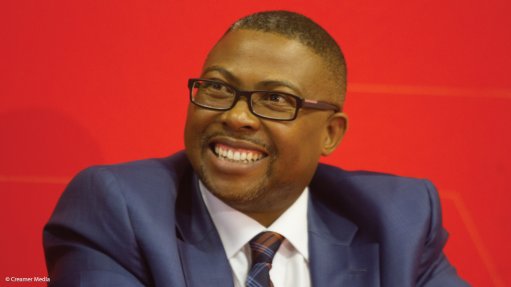
Transnet group CE Siyabonga Gama
Photo by: Duane Daws
Cabinet approved the appointment of Siyabonga Gama as the permanent CEO of Transnet at its meeting on Wednesday – a role that he had been performing in an acting capacity since the departure of Brian Molefe to Eskom in April last year.
Gama, who has been at Transnet for the past 21 years and an executive for 14 years, officially succeeded Molefe, who himself was appointed as permanent CEO of South Africa's struggling State-owned electricity utility in October. Gama had been appointed for an initial period of five years.
Public Enterprises Minister Lynne Brown said Gama, who obtained a Bachelor of Commerce degree from the University of Swaziland in 1998, had extensive experience in the transport and logistics sector.
Gama was dismissed as CEO of Transnet Freight Rail (TFR) for “governance breaches” in 2010, but was reappointed as an executive in February 2011 and subsequently resumed his role as TFR CEO, until his selection as acting group CEO last year.
“I wish Mr. Gama well as he leads Transnet into further improvement of operational efficiency and sustainability,” Brown said in a statement.
The Minister made no mention of Transnet’s much-vaunted Market Demand Strategy (MDS), which was conceived under Molefe’s leadership and during a far more robust period in the commodity cycle.
Gama had insisted previously that the R340-billion to R380-billion investment strategy remained intact. However, he confirmed that some components of the plan might be deferred in light of the weaker commodities outlook.
A major component of the plan related to the expansion of the coal and iron-ore corridors, as well as the development of a new manganese export channel through the Port of Ngqura, in the Eastern Cape.
In light of the slump in mineral prices, Transnet, under Gama’s leadership, was reassessing the timing of MDS investments, while the MDS time horizon had also been extended by three years, from seven to ten.
More has R108-billion had been invested under the aegis of the MDS since its official launch in 2012.